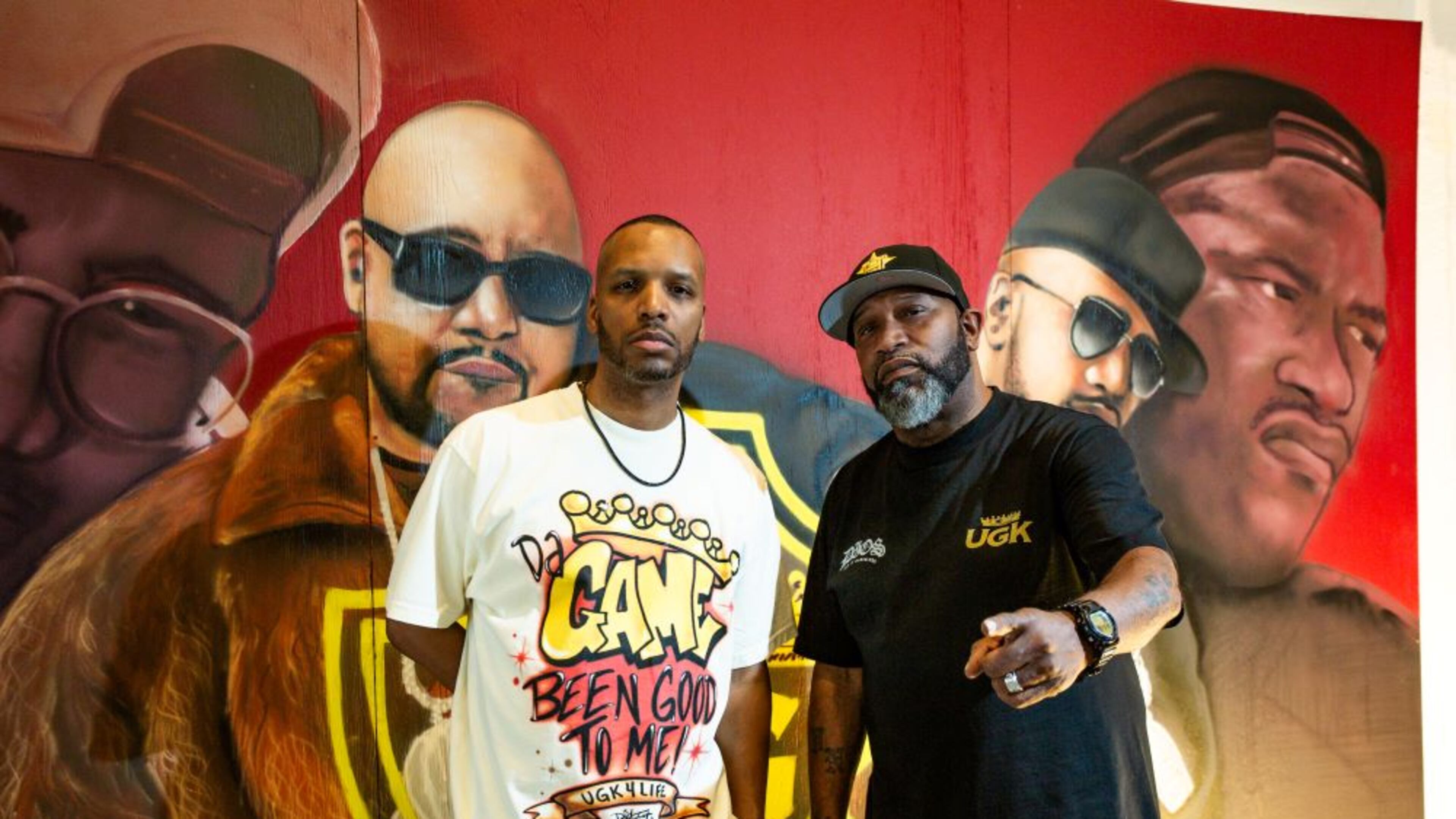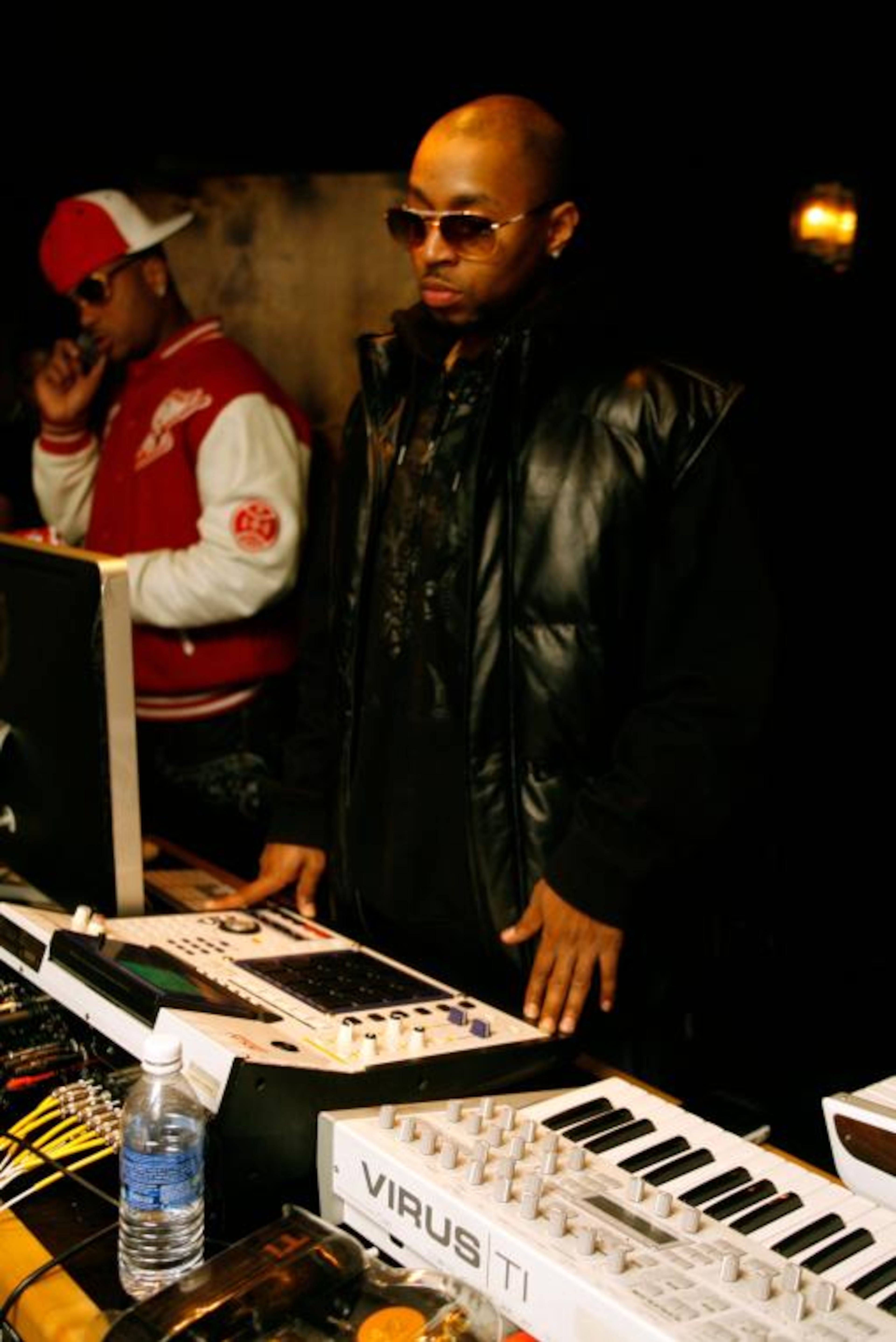Atlanta producer Cory Mo and Southern rap legend Bun B drop joint project

In 1993, Port Arthur, Texas, rappers Bernard “Bun B” Freeman and Chad “Pimp C” Butler came to Atlanta as Underground Kingz to promote their debut album “Too Hard to Swallow.”
The duo, known as UGK, stopped by the Dungeon, the unfinished basement recording studio in the family home of the late producer Rico Wade. They watched up-and-coming Atlanta rap groups OutKast and Goodie Mob write, record and listen to Wade’s feedback.
In an interview with UATL, Bun B said Wade’s infectious energy and support for developing artists still inspires him to constantly collaborate with emerging talent while working on his craft.
“They had unity, community, brotherhood, drive, dedication, focus and confidence early in their movement. If Rico was nothing else, he would instill you with confidence to make you feel like you could do anything, too,” Bun B said.
Thirty-two years later, Bun B has teamed with UGK protégé and Atlanta producer Cory Mo, on the album “Way Mo Trill,” the follow-up to their 2022 joint project “Mo Trill.”
The album, released Nov. 7, features Southern rappers like Atlanta’s Young Dro and Memphis native Project Pat, comedian Chico Bean, and newcomers Monaleo and Akeem Ali.
Laid back grooves, gospel-inspired melodies and up-tempo bangers are throughout the album’s 10 tracks. Bun B’s goal was to keep the music from sounding dated.
“I’m making sure what we’re doing isn’t boxing us into a specific time period. It’s good to have nostalgia and people appreciating what we’ve done, but we want to connect with the vibes and talent of today,” Bun B said.
Cory Mo, who moved to Atlanta from Houston in 2010, was assisted on three songs by Atlanta producers Ray Murray of Organized Noize, DJ Toomp and Drumma Boy.

“Way Mo Trill” is not Murray’s first time working with Bun B. He co-produced “I Can’t Lie” on the new album but also produced UGK’s 2002 song “Belts to Match” as part of Organized Noize. Murray said collaborating with Bun B and Cory Mo is fun and easy.
“You don’t have to guide or lead them. They have a classic vibe but appreciate having voices there to help them push boundaries,” Murray said.
“Bun likes to be challenged by rhythm and pace of the music, so we find a vibe, pick a topic and go.”

Drumma Boy said Bun B is a perfectionist.
“He’s an OG and a ‘one-take Jake’ who takes his time writing lyrics. When he hits the booth, he knows exactly what he’s going to say because he’s already rehearsed it and said it back to himself a million times,” he said.

UGK was among the pioneering Southern rap groups to emerge in the ‘90s without major airplay and commercial success. They rapped, with heavy Southern accents, about Black life below the Mason-Dixon line and creating their lane in rap music over funky, soulful arrangements.
Pimp C, a producer and musician, coined UGK’s sound as “country rap tunes.”
UGK achieved notoriety with features on Jay-Z’s “Big Pimpin,” Three 6 Mafia’s “Sippin on Some Syrup” and “International Players Anthem (I Choose You)” with OutKast. Pimp C died in December 2007 at age 33.
“Way Mo Trill” was released the day before OutKast became the first Southern hip-hop group inducted into the Rock and Roll Hall of Fame. Bun B said OutKast’s enshrinement cements regional hip-hop’s place in popular music.
“We’re that much closer to seeing that level of appreciation for UGK, Three 6 Mafia, 8Ball and MJG, Luke Skyywalker and Jermaine Dupri,” he said.
“It’s good to know those who are not our immediate peers or contemporaries can willingly acknowledge the impact the music and culture we contributed to as important, validated and needs to be celebrated.”
Bun B raps on “Way Mo Trill” about entrepreneurship, achieving longevity in hip-hop and becoming a grandfather. He said he releases music not because he’s contractually obliged to record companies but rather because it’s his passion.
“I love being connected to the people and making music because I want to on my time. Many of us (veteran rappers) just want to be the best version of ourselves that we can be and show that we can go with the best of them in the game,” Bun said.
“There’s a void for my generation who don’t have a connection to the language or messages this generation is sending out. We want to make sure those people that still want music and see live performances from that era got artists that are still productive.”
Cory Mo, who became UGK’s in-house producer in 1999, went on to produce for rappers Devin the Dude and Killer Mike and vocal trio TLC. He said UGK taught him to treat music as his profession.
“I learned to be on time, keep the music authentic and have integrity about everything that we do. We don’t chase radio records, because we chase what feels good,” Cory Mo said.

Bun B said a documentary on UGK’s career is forthcoming. He hopes younger audiences will recognize UGK’s contributions to hip-hop.
“I would really like to lay out what UGK’s legacy has done for people in a way they can really understand it, see exactly where and how we were impactful before I die,” he said.
